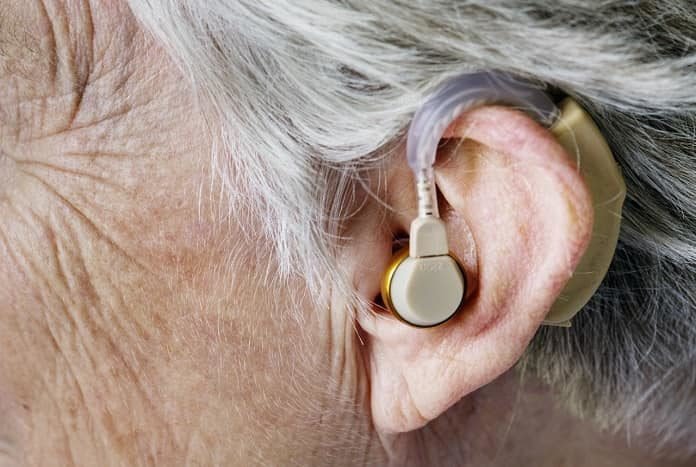New research in mice highlights genetic mechanisms for inherited deafness that could lead to treatment strategies in humans.
Certain forms of progressive hearing loss share a genetic basis. Approximately ten years ago, researchers at the National Institute on Deafness and Other Communication Disorders identified a group of genes, dubbed DFNA27, that lead to progressive hearing loss when mutated.
Current research carried out by a joint research team at the University of Iowa and the National Institutes of Health has revealed more about the nature of this mutation. Their work was recently published in the journal Cell. While studying mice, they identified a gene called REST which was implicated in the regulation of the sensory cells of the inner ear. These hair cells are essential for hearing as they are responsible for receiving auditory stimuli.
When the researchers deleted a particular coding sequence of the REST gene in mice, they found that the inner ear hair cells died and led to deafness. This sequence, referred to as exon 4, acted effectively as a molecular switch, activating genes responsible for the survival of hair cells when present and leading to hair cell death when suppressed. The team then took it one step further and blocked the inhibitory process of the REST gene using small molecule drugs. The mice treated with these drugs were able to have their hearing partially restored.
These results hold promising clinical implications for treatment, particularly because the human counterpart of the REST gene is located in the aforementioned DFNA27 group of genes associated with inherited deafness. The authors of this study highlight the importance of the basic research that went into studying these molecular mechanisms and hope that these results lead to possible treatment plans for progressive hearing loss in humans.
Written by Agustin Dominguez Iino, BSc
References:
- Novel drug therapy partially restores hearing in mice. National Institutes of Health. https://www.nih.gov/news-events/news-releases/novel-drug-therapy-partially-restores-hearing-mice. Published July 2, 2018.
- Nakano Y, Kelly MC, Rehman AU, Boger ET, Morell RJ, Kelley MW, Friedman TB, Bánfi B. Defects in the Alternative Splicing-Dependent Regulation of REST Cause Deafness. Cell. 2018 Jul 26;174(3):536-548.e21. doi: 10.1016/j.cell.2018.06.004. Epub 2018 Jun 28.



